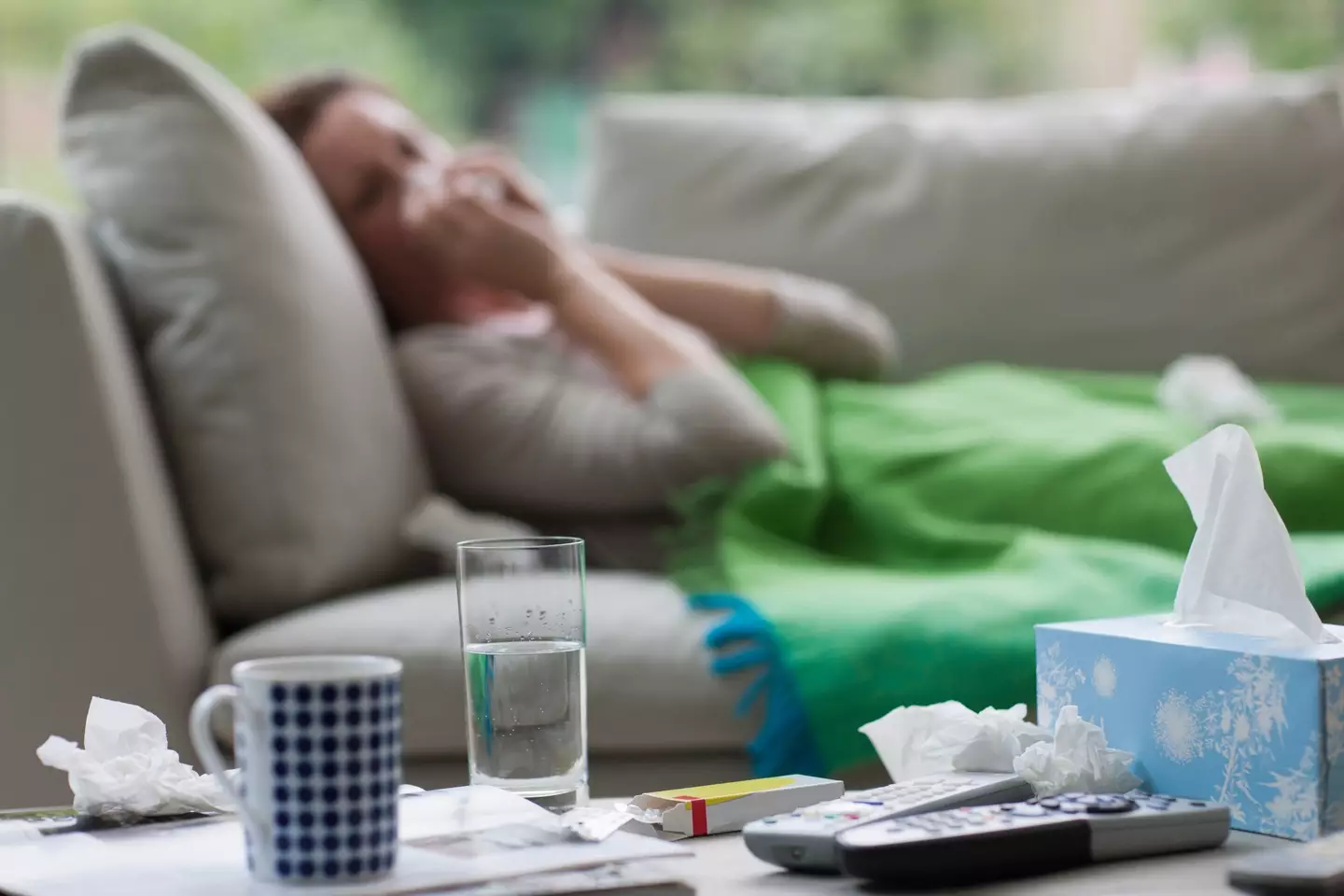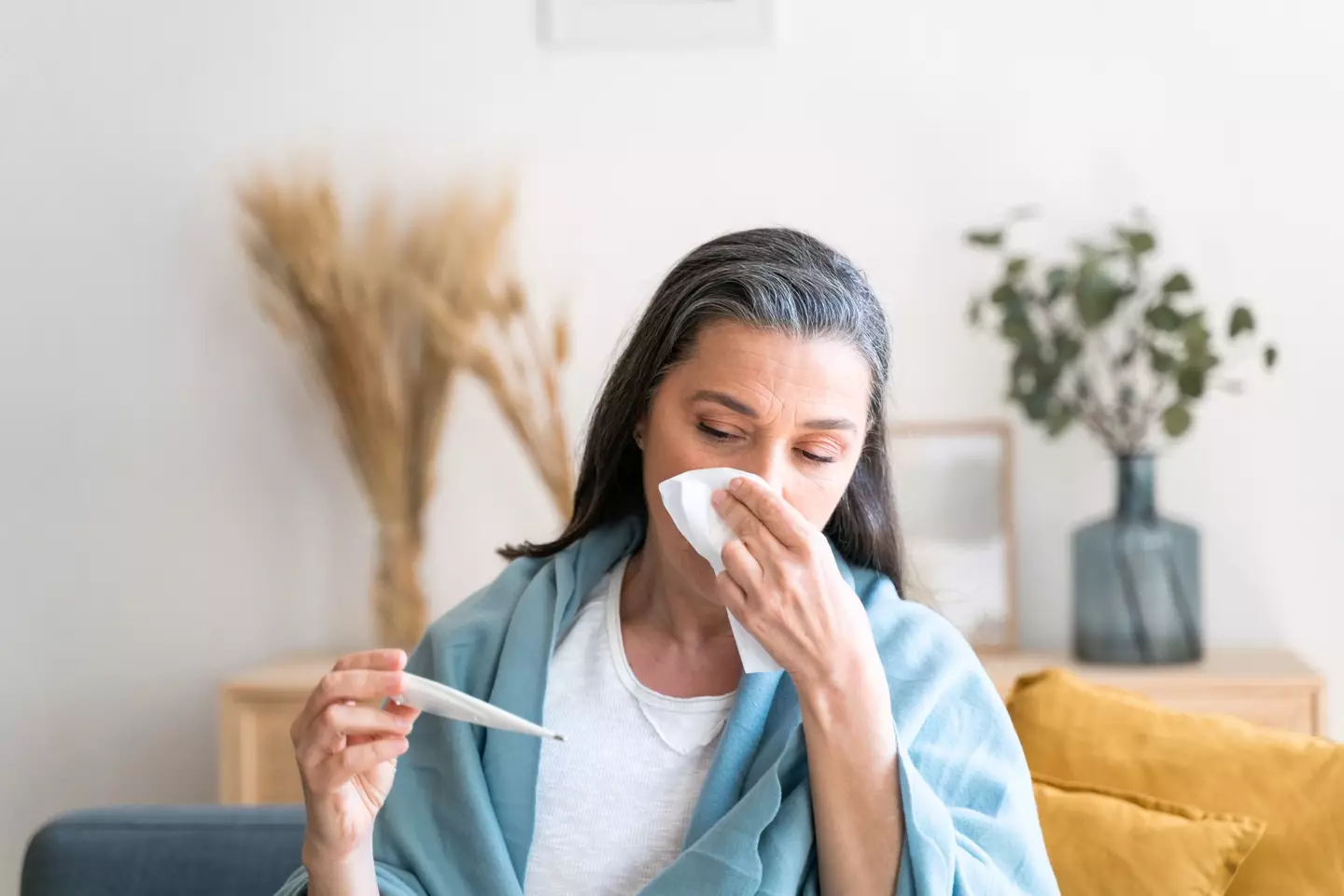
After several members of Team Tyla have been wiped out with a serious of minor illnesses in recent weeks, we've been wondering whether sickness really is just a sign of the times.
Common colds, coughs, and even norovirus - the dreaded 'vomiting bug' - are often associated with changes in the weather as we near the colder months.
But after we launched an investigation into why every man and his dog seems to have been taken ill recently, one doctor said there could be several other factors involved...

Advert
As we reported earlier this week, as well as common colds, coronavirus is still very much around, with the NHS stating that most people infected with it will experience 'mild to moderate respiratory illness' in the coming weeks.
An annual spike in influenza - also known as the flu- has medics recommending vaccinations to those who haven't yet received one.
And an official monthly report covering 23 September and 6 October this year found that norovirus activity has 'remained high in recent weeks' and has also 'started to increase in recent weeks'.
And though one GP that Tyla caught up with this week - Kate Jameson, a doctor from Youthlab AUS - says that a drop in temperatures and more time indoors can increase proximity to those carrying germs, she says that two other factors could also be at play.
Immune system fatigue

"After several years of heightened awareness around viruses like COVID-19, many people’s immune systems are now less primed to deal with common pathogens such as cold and flu viruses," Dr Jameson explained.
"Our natural immunity may have decreased because we haven’t been exposed to these bugs as much during the pandemic lockdowns."
She added that, as well as 'pandemic fatigue', a rise in people having become more lax in protecting themselves could be a contributing factor.
Overlapping symptoms and confusion
Dr Jameson went on to reveal that doctors and nurses are often dealing with a confusing mix of symptoms this time of year.
Being that flu, COVID, and stomach bugs often present with similar symptoms - including the likes of coughs, headaches, and fever - she says that uncertainty and unnecessary concern can occur as a result.
"While testing is still important for COVID, other illnesses can often be managed effectively at home," she continued.

Asked how we should best protect ourselves from minor sicknesses and infections as cases begin to spike, Dr James also issued us a handy list and do's and don'ts.
Do:
- Maintain good hygiene
"Regular handwashing remains one of the most effective ways to prevent the spread of germs," she explained.
"Antibacterial hand gels are useful, but soap and water are just as effective."
- Focus on sleep, balanced nutrition and hydration
"The better your overall health, the more resilient your immune system will be."
- Get vaccinated
"The flu vaccine is a crucial tool in preventing severe illness during the colder months."
- Ventilate your space
"Fresh air is vital, even when it’s cold," she told us. "Regularly opening windows reduces the concentration of airborne germs in your home or workplace."

Don't:
- Panic
"Be aware of your health and that of those around you, but don’t panic," Dr Jameson also warned.
"With the right precautions, many of these illnesses can be avoided or easily managed.
"Stay proactive, get vaccinated, and most importantly, listen to your body."